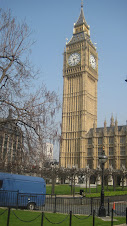Our tour guide Olga explained that the Czech people are not religious, pointing to the many churches we passed along the way. We noticed that there were lots of concerts advertised in front of these magnificent structures and she told us that’s mainly what they’re used for now. In the context of her tour, there was a logic to it.
Until 1985 what is now the Czech Republic was controlled by the Soviet Union. For two generations any religious observance was ridiculed if not actively put down.
The word “God” was forbidden in media of any kind. Churches became property of the state and used for storage or concerts, but often simply closed. This apparently has had a major impact. Today, the percentage of self-described “non-religious” is close to 75%. This includes people who do not even baptize their children or have church weddings. Olga mentioned that the only time she’s seen a wedding in church, for example, is on American TV or in the movies.
Many of the great churches we saw had been built as Roman Catholic dating before the 1500’s as shrines to saints with wonderful histories. She told us of one story where an early King Wenceslaus (not the good king of Christmas carol fame) suspected his wife of infidelity and forced her confession to the Archbishop, John of Nepomuk. Hearing her confession, the Archbishop refused to divulge the information to the Emperor since all confessions are sacrosanct. The furious Emperor had the Archbishop tortured, and while still resolute in his denial, hung over the side of the Charles Bridge and flung to his death. It was said that as he hit the water five stars appeared around his head. His statue is a common site around Prague and recognized by the brass stars that still surround the many heads of St. John. Olga told the story dutifully, and shrugged.
Despite her clear feelings about religion, I detected a bit of national pride when she later pointed out a statue to Jan Hus, who started the Protestant Reformation almost 100 years before Martin Luther. Hus is historically overshadowed by Luther because of the larger impact of Luther’s work. But Hus was first, Olga said shrugging as though such things mattered, and we walked on. Hus was burned as a heretic by the Roman church but over the next generations 90% of the people adopted his reforms breaking with Rome eventually and the majority became “Hussites.”
The Protestant era ended abruptly when Europe’s 30 year war established Austria’s Hapsburg Emperor over Bohemia and Moravia (now Czech Republic). The Austrians were devout Catholics and as is the sovereign, so are the people. Protestant churches were changed almost immediately to Catholic. Clergy had the choice to emigrate to Protestant Europe or be burned. I suspect the people just shrugged. Never the less, the Rococo style favored by Austrian Catholics became vogue as visible changes to the scenery glossed over sentiments that lay beneath.
It was also during this period that a small statue was donated to the Catholic church that had been in a wealthy, prestigious family for generations. This statue of the infant Jesus has a wonderful story attached to it originating in Seville, Spain. Its travels and healing abilities became the stuff of legend and now known as the Infant of Prague holds a special place in the religious terrain of the world wide Roman Church, and perhaps somewhere in the hearts of the Czech people.
By the time the Soviets came, the Czech people had what appears to be a skeptical religious history of being told what to think and believe. One gets the sense that the shrug hides the true beliefs and beneath the denial is a pride of the heritage and contribution to the world’s religious topography.
People come to faith. They are not pushed or pulled. Compliance does not indicate adherence. Olga used the term “Velvet Revolution” to describe Czech independence from Russia without major bloodshed. As they continue to rebuild their country and identity, who knows what directions their faith and use of churches may take. But one thing is for sure, no one is going to force them.












